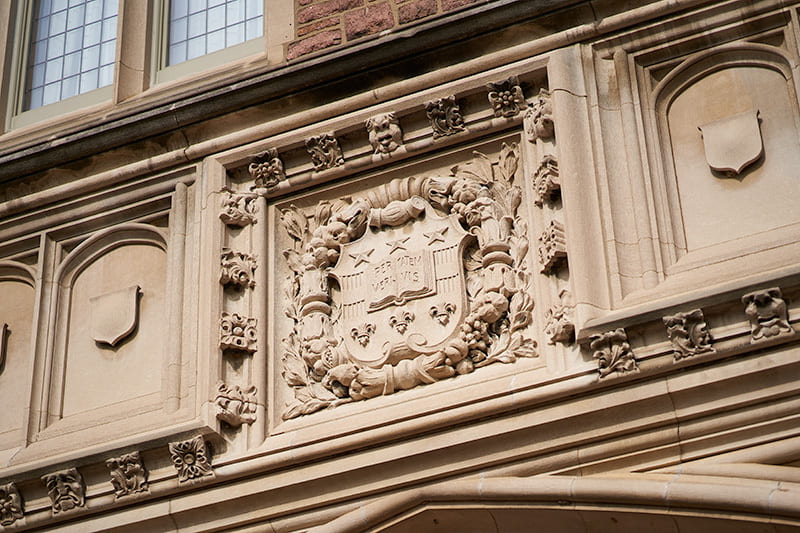
Whatever differences we have as individuals within our Washington University community, we share in common an ability and a responsibility to think critically about our world. And as our community becomes more diverse in every way, we will increasingly learn from and alongside people whose lives and histories differ greatly from our own, and who may, as a result, either hold different perspectives on issues that matter a great deal to us, or who perhaps have not yet had cause or opportunity to examine those issues critically. As a result, the education our students receive at WashU today has the potential to be the richest of any yet in our history.
Great universities like ours push the boundaries of currently accepted knowledge and understanding. So, too, do the individuals and groups who comprise them. Lively intellectual conversations are as commonplace as comments about the weather. As chancellor, it’s important that I help cultivate a campus community in which everyone has a voice, the freedom to exercise their rights and duties to speak out against injustice and inequity, and an opportunity to learn from one another without insult or intimidation.
It’s not easy. Last week I co-taught the final section of my “Free Speech on Campus” course to about forty undergraduate students. In this course we explored the importance of free speech and academic freedom on university campuses. At WashU, this value has been enshrined by our faculty and the Board of Trustees in the Policy on Academic Freedom, Responsibility, and Tenure. The best discussions we had over the course of the semester were around situations when matters of free speech came into direct conflict with other values people hold dear, including national security, safety, morality, privacy, reputation, dignity, and equality. We concluded that when these values come into conflict, there are not easy answers. But we must learn ways to approach these situations productively.
So what does it look like to intentionally develop the skill of civil discourse within ourselves as individuals or within an institutional culture?
First, I encourage adopting an attitude of humility, which is, in essence, an acknowledgement that the truth of our world is far more complex than any one individual can know in full. When we are humble, we are open to learning, not necessarily in order to change our minds entirely (although that’s not such a bad thing!), but rather, to add nuance to our understanding that will make our advocacy more compelling and our solutions more effective.
Next, as Maya Angelou wrote, “Forgive yourself for not knowing what you didn’t know before you learned it.” If you become a natural at this, then you’ll start to view others with more empathy, too. This is one of the great joys and benefits of surrounding yourself with a richly diverse group of people, a value I think we all share.
People learn about things at different times, in different ways. That is obvious, but it can be hard to remember when you’re debating an issue you feel strongly about. You may have lived through something your peers only learned about from Twitter. Your classmate may have learned something through trauma that you’ve only imagined intellectually. Your roommate may have been raised in a household where a subject that is important to you was off limits for any number of reasons. Forgive them, just as you can forgive yourself, for not knowing what they didn’t know before they learned it. Give them credit for engaging in the conversation at all, especially if they’re approaching the topic with an open mind.
Finally, keep your eye on the long term goal. For your work to be effective in the long term, you certainly have to push the boundaries of what is comfortable today. I am not suggesting we sacrifice progress or justice for comfort. But language that threatens harm or humiliation should never be part of the strategy. Like a parent who disciplines through harsh punishment, it may seem effective in the short term, but no real learning or transformation can take place within a dynamic of power and fear. Rather, it can set back progress for an entire generation.
Critical thinking, free speech, and civil discourse are matters we all have on our minds. Our students, our faculty, our staff, and even our parents, are navigating a period of heightened awareness of these concepts within our relationships and responsibilities. We want to dismantle what is harmful without causing further harm, and we have a sense of urgency about it. I admire the ways our community works to effect change; I am inspired by your passion; and I desire to make support and resources available to help you be successful in your pursuits. And I encourage and expect us all to lead the way with civility, humility, and empathy. That’s how we’ll become real changemakers.